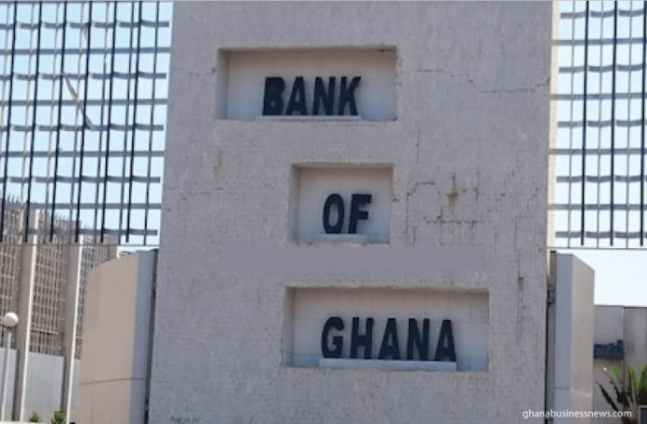The Monetary Policy Committee (MPC), today held an extraordinary meeting to review recent developments in the economy and assess risks to the outlook.
The Committee took note of the increase in inflation in the month of July and heightened pressures in foreign exchange market and deliberated on the underlying drivers.
A summary of the assessment and key considerations that informed the Committee’s decision on the stance of monetary policy is provided below:
1. The latest consumer price index release showed that the headline inflation accelerated further for the eleventh consecutive month to 31.7 percent in July 2022, from 29.8 percent in June 2022. This was driven by both food and nonfood price pressures. Food inflation rose to 32.3 percent in July 2022 from 30.7 percent in June 2022. Similarly, non-food inflation increased to 31.3 percent from 29.1 percent in June 2022, contributing 55 percent to the rise in headline inflation in July 2022.
2. The above developments have translated into relatively strong underlying inflationary pressures. The Bank’s core measure of inflation, defined to exclude energy and utility indices, increased to 30.2 percent in July 2022 from 28.4 percent in June.
3. On month-on-month basis, headline inflation rose by 3.1 percent in July 2022 compared with 3.0 percent in June 2022. The increase in monthly inflation was underpinned by increases of 3.3 percent and 3.0 percent in food and non-food inflation respectively.
4. Recent developments in the foreign exchange market showed elevated demand pressures, reflecting among others, continued heightening of uncertainties in the global economy, rising inflation in many advanced economies and the resultant coordinated tightening of monetary policy stance by major central banks. This has further tightened global financing conditions with significant implications for Emerging Markets and Developing Economies (EMDEs), especially for those with weak fundamentals.
5. The US Dollar has strengthened against all major currencies. From the beginning of the year to date, the pound sterling has weakened against the US dollar by 12.4 percent while the Euro has also weakened by 11.8 percent. Countries similar to Ghana (Ghana’s peers) are all experiencing sharp depreciation to date. The Ghana Cedi has depreciated by 25.5 percent year-to-date, reflecting the Ghana specific situation, including the challenging financing of the budget from both domestic and external sources, downgrading of soverign credit rating, non-residents disinvestment in local currency bonds, and loss of reserve buffers.
6. The execution of the budget for the year has remained challenging. Revenue has not kept pace with projections and created financing challenges. In the absence of access to the international capital market and given the constrained domestic financing, central bank overdraft has helped to close the financing gap as reflected in the mid-year budget review. The Bank of Ghana is working with the Ministry of Finance to agree on a cap on the overdraft.
7. Whilst addressing the immediate financing problems, the ongoing policy discussions with the IMF are expected to address the underlying macroeconomic challenges, restore fiscal and debt sustainability, and provide sustainable balance of payments cushion.
8. Under the circumstances, and considering the risks to the inflation outlook, the Committee decided on a 300 basis points increase in the Monetary Policy Rate to 22 percent.
Additional Measures
9. The Committee also took the following additional measures: a. Raise the primary reserve requirement of banks from 12 percent to 15 percent to be implemented in a phased manner:
- 13 percent from 1 st September, 2022
- ii. 14 percent by 1 st October, 2022
- iii. 15 percent by 1 st November, 2022 10. To boost the supply of foreign exchange to the economy, the Bank of Ghana is working collaboratively with the mining firms, international oil companies, and their bankers to purchase all foreign exchange arising from the voluntary repatriation of export proceeds from mining, and oil and gas companies. This will strengthen the central bank’s foreign exchange auctions.
10. To boost the supply of foreign exchange to the economy, the Bank of Ghana is working collaboratively with the mining firms, international oil companies, and their bankers to purchase all foreign exchange arising from the voluntary repatriation of export proceeds from mining, and oil and gas companies. This will strengthen the central bank’s foreign exchange auctions.
Informational Note
The next Monetary Policy Committee (MPC) meeting is scheduled for September 20 - 23, 2022.
The meeting will conclude on Monday, September 26, 2022 with the announcement of the policy decision.
Latest Stories
-
CHAN 2024Q: ‘It’s still an open game’ – Didi on Ghana’s draw with Nigeria
6 minutes -
CHAN 2024Q: Ghana’s Black Galaxies held by Nigeria in first-leg tie
1 hour -
Dr Nduom hopeful defunct GN bank will be restored under Mahama administration
2 hours -
Bridget Bonnie celebrates NDC Victory, champions hope for women and youth
2 hours -
Shamima Muslim urges youth to lead Ghana’s renewal at 18Plus4NDC anniversary
3 hours -
Akufo-Addo condemns post-election violence, blames NDC
3 hours -
DAMC, Free Food Company, to distribute 10,000 packs of food to street kids
4 hours -
Kwame Boafo Akuffo: Court ruling on re-collation flawed
5 hours -
Samuel Yaw Adusei: The strategist behind NDC’s electoral security in Ashanti region
5 hours -
I’m confident posterity will judge my performance well – Akufo-Addo
5 hours -
Syria’s minorities seek security as country charts new future
5 hours -
Prof. Nana Aba Appiah Amfo re-appointed as Vice-Chancellor of the University of Ghana
6 hours -
German police probe market attack security and warnings
6 hours -
Grief and anger in Magdeburg after Christmas market attack
6 hours -
Baltasar Coin becomes first Ghanaian meme coin to hit DEX Screener at $100K market cap
6 hours

